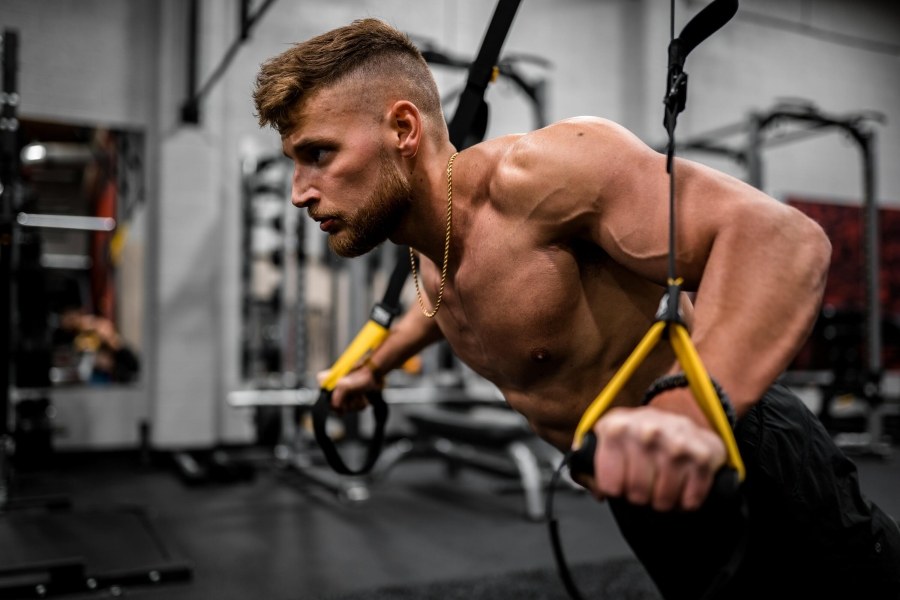

But there’s one all-important question:
How much does it cost to start a gym?
Launching your own facility is a business decision and a big one in that. There are costs and capital to be invested in making sure you turn a profit as soon as possible.
This article will take a closer look at the majority of those costs.
Cost breakdowns
The total cost of starting your own gym will depend on many different variables relevant to your specific situation. As those variables, like size and style, change, so do the costs.
Starting a more extensive size gym is going to have a higher cost. Think more than $1,000,000 of a facility with almost all the services and facilities of world-renowned gyms.
A gym of this size and scale is also going to have significantly higher ongoing costs, too.
Taking a step down, a mid-size fitness facility that could easily be the biggest (and best equipped) in a larger city could cost around $250,000.
Starting a facility focused on complementing a particular sport, like football, cycling, or running, can have price tags of approximately $100,000.
Alternatively, a smaller boutique facility that focuses on a few clients at one time can be launched for as little as $60,000.

It’s important to note that these are estimations, and so much can impact the final value of these costs. It pays to take a close look at the prices, both one-off and on-going, and find a value that’s more suited to you.
One time upfront cost
These are the costs that hurt the most. They’re not small, and there’s a good number of them. It’s important to note that each cost varies depending on your facility size, business model, etc. Also, some may not apply to you but are worth considering.
Real Estate
More often than not, this first cost is the most significant cost. Size and location are the biggest factors determining your physical location’s price.
Expect to spend more than $300,000 for a larger commercial space for change rooms, showers, and a few workout rooms in a decent-sized city.
Equipment
Another element that varies no end, depending on the amount, quality, and type of equipment you want.
Expect to spend no less than $12,000 on good-quality equipment for a smaller, boutique facility and upwards of $100,000 for a fully-equipped commercial facility that caters to just about all workouts.
Licenses and permits
The jurisdiction in which you operate will define the business licenses, permits, and health and safety licenses you need before opening.
Costs will vary depending on your local authorities and the types of permits you’ll need.
Certifications
Accreditations for your personal trainers are essential to ensure that you provide a good service, not just a good facility.
Accreditations for the International Sports Sciences Association (ISSA), American College of Sports Medicine (ACSM), National Strength and Conditioning Association (NSCA), American Council on Exercise (ACE), and National Academy of Sports Medicine (NASM) are the go-to accreditations in the industry.
Expect to pay between $400 and $1000 per certification.
Legal fees
It pays to have a professional do it for you when negotiating leases, final sales, and general legal work.
Expect to pay around $200 per hour for such professionals, but again they’ll vary.
To get all the legal documents signed and certified in order to launch your gym, expect to pay $10,000.

Insurance
A non-negotiable necessity, expect to pay around $12,000 for general liability, worker’s compensation, and other miscellaneous policies.
This varies drastically depending on if you’re a franchise and your business model and size.
Renovations and improvements
Want to knock down a wall or install a fan? There will be costs associated with getting a professional to do the work, and it’s advisable that you get a professional and not rely on it yourself.
Digital connectivity
You’ll need a computer network for all your computers to talk to each other and a point of sale system for secondary spend and membership payments.
Small facilities can expect to pay as little as $500 for such a solution, but larger, customized solutions can get up to around $5000.
PerfectGym’s Gym Management Software lowers these costs without compromising on features. Delivering automation, it helps reduce operational costs whilst upholding high customer service.
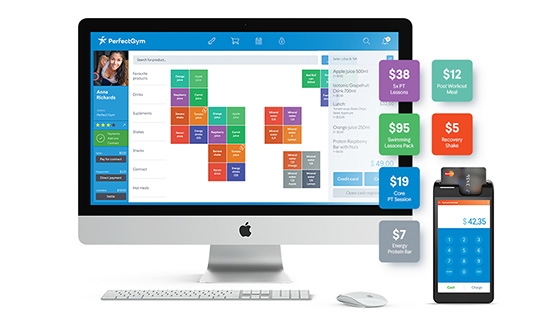
Branding & signage
Foot traffic is a great audience to market your facility, but they need to know you’re there. Signage, something that can be had for as little as $200, helps people understand what your facility is.
Branded merchandise
Secondary spending is a great way to generate more revenue, but it requires capital to be invested—T-shirts, leggings, and foods like protein powder, snacks, mats, etc. Budget $5000 to get your inventory sorted.
Miscellaneous
Towels, chairs, furniture, decor - these are all small things that can be overlooked but still are important. Budget $500 for such items.
Advertising
This is more of an ongoing cost that falls under marketing, but it wouldn’t hurt to invest some money in the launch of your facility.
Consider a budget of $5000 to really move the needle and get newcomers through your doors.
You can reduce the overall cost of advertising with PerfectGym's Automated Smart Campaigns feature. Once you've established a database of clients, the Smart Campaign feature allows you to send automated campaigns to your prospect list, informing them of the latest deals at your facility.
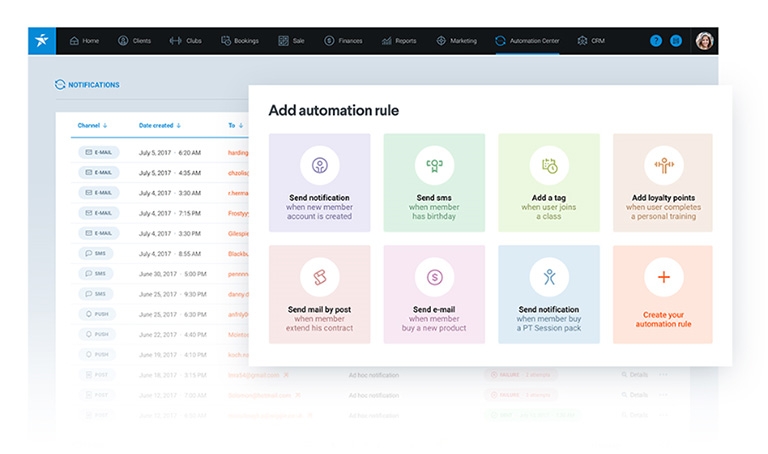
Websites
In a digital world, a website is paramount. While social media accounts are free, websites aren’t, especially if you want one that looks as good as your facility.
Depending on the features you want, expect to pay at least $500 to get something up and running.
Cash
It doesn’t hurt to have at least $1000 on hand at any given time for daily operations, tills, and other unseen yet small expenses.
On-going costs
As you saw earlier, the expenses for opening and running a gym or fitness facility vary incredibly, based on the type of operation you’re aiming for.
Exact figures may vary, but here are several ongoing costs that you’ll need to factor in for the on-going costs of running a gym.
Insurance
An ongoing cost that’s non-negotiable. If you can’t afford business insurance, you can’t afford to be in business.
Premiums for public liability, theft, and fire damage start at around $15,000 but may vary depending on your local area. They’ll have to be paid annually or monthly.
Mortgages and leases
What will it cost you to keep the building you’re operating in?
Whether you buy or rent, this cost may be one of the biggest and one that will vary the most depending on things like your location, the size, amenities, and so on.
Equipment
The equipment itself has ongoing costs in the form of repairs and maintenance.
Equipment that’s not treated delicately but built accordingly will have to factor in frequent repair and maintenance costs. Expect to pay at least $62,500 annually for equipment maintenance if it’s second-hand equipment.
Interested in finding out the equipment you'll need? Don't worry, we've got you covered, check out our list of gym equipment essentials.
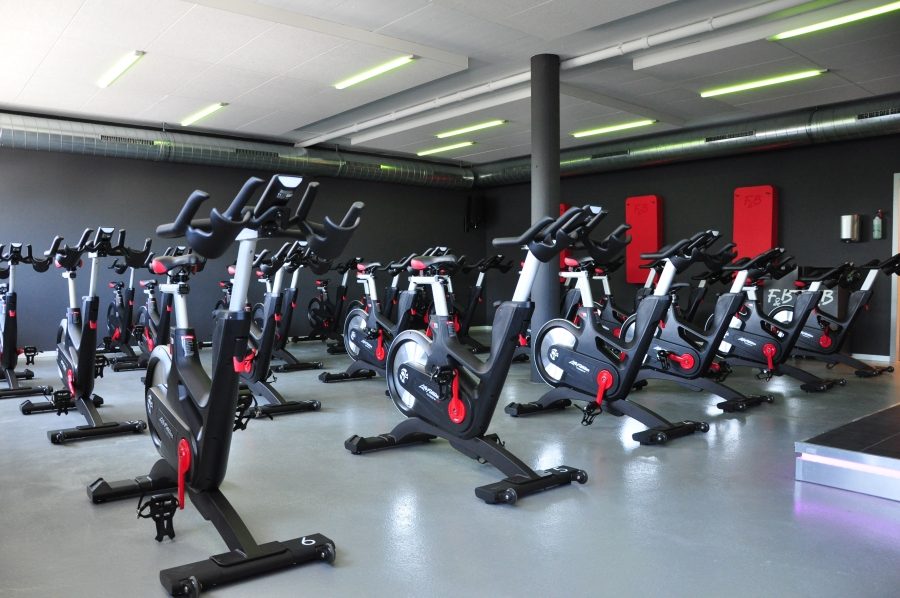
However, you may be able to keep maintenance costs down by buying new equipment that has a usage warranty.
Many equipment manufacturers offer perks like discounted or free maintenance if you populate your facility exclusively with their equipment.
This will lower or remove maintenance costs altogether, but you can also expect to pay between $3500 and $8500 for monthly equipment lease payments.
Again, this will fluctuate drastically depending on the equipment itself and the number of units you buy.
Compliance permits
Many business compliance permits have annual renewal fees. Your local government can tell you more, but it’s something to be aware of when factoring in on-going costs.
Cleaning
Your gym is going to get covered in sweat, so keeping it clean and sanitized is paramount - especially in the middle of an epidemic.
Think laundry services, buckets, mops, wipes, towels, vacuums, toilet paper, paper towels, cleaning liquids, etc. $200-$500 per month for small, boutique facilities can be expected, with more extensive facilities spending between $12,000 to $30,000 annually.

Think laundry services, buckets, mops, wipes, towels, vacuums, toilet paper, paper towels, cleaning liquids, etc. $200-$500 per month for small, boutique facilities can be expected, with more extensive facilities spending between $12,000 to $30,000 annually.
Electricity & water
Lights, treadmills, speakers, fridges, showers, sinks, and toilets all use water and electricity. And if your facility is open around the clock, you’ll use a lot of both.
Small facilities can spend a minimum of $45,000 a year on water and electricity, with more extensive facilities paying around $70,000. Note that the cost of these utilities is only going to go up.
Heating & Aircon
Some ‘old-school’ facilities can get away with no airconditioning or heating, but as a new facility in town, they’re a must.
But they also come with an on-going cost of at least $500 a year for regular, scheduled maintenance.
Connectivity
If you’re in a bigger city and attracting travelers, they’ll appreciate WiFi. Expect to pay around $75 a month for fast, reliable internet.
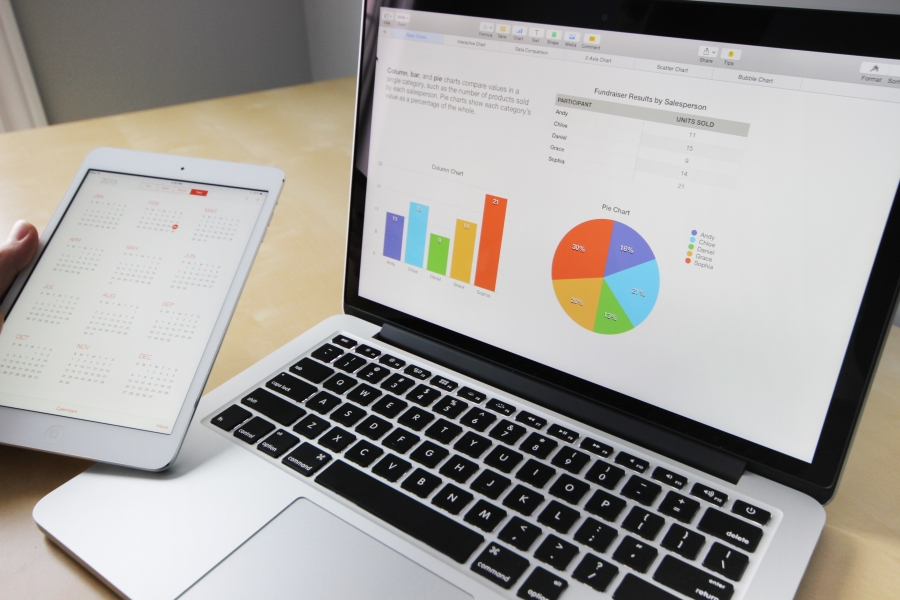
Source
Wages
Your team will have individual salaries, based on what you agree on. It’s advisable to have a few months of payroll in the bank, ready to go before you launch, as it might take a few months to make your business profitable.
Payroll and/or self-employment taxes
This cost is entirely dependent on your wages. Your personal situation and that of each team member will impact what taxes you’ll have to pay quarterly.
Self-employment taxes are usually between 7% and 8%, depending on your local area.
Marketing
It might pay to hire a local agency to help spread the word if you’re new in town.
Alternatively, if you’re experiencing and known in your local community, you may be able to do a majority of the marketing yourself. Your business model will dictate what kind of marketing you do and how much it costs.
Word of mouth and referral programs are the cheapest forms of spreading the word about your fitness business.
Legal costs
Professional legal services cost around $200 per hour and are good to have on hand in the case of an emergency.
Credit Card processing fees
3.25% is the highest industry rate that we can find, but it pays to shop around. Compliance fees start at about $5 a month for the mandatory PCI compliance.
Miscellaneous costs
There’s always a cost that’s going to come out of nowhere, so it pays to have some cash on hand for anything you’ve missed. $1000 is a nice buffer to have.
How the right gym management system can help reduce the costs of running a gym
Installing a second-hand leg press because it’s cheaper might lower the costs of sourcing equipment for your facility, but in the long run, it’s going to require more maintenance more often.
The same applies to the business side of your business. If you’re using Excel spreadsheets to track vital elements of your business, problems will happen more often.
Using the right gym management software can lower both the launching and on-going costs of operating your fitness facility.
A sales platform that automatically takes monthly payments from your customers means that you don’t have to do it manually and frees up your staff to do more important things.
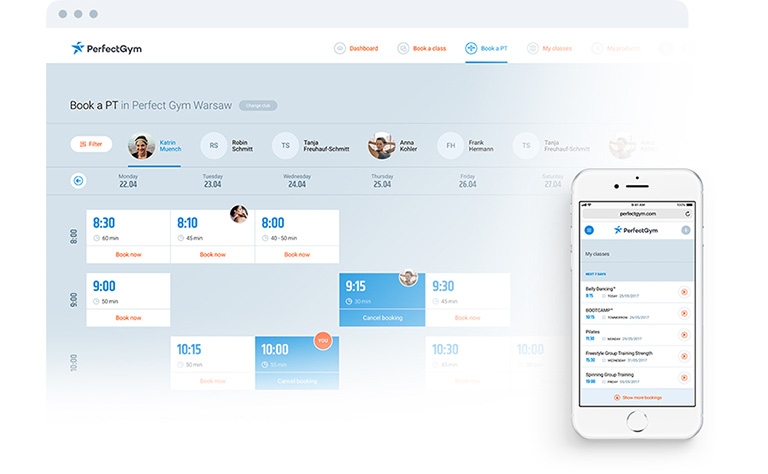
But what if that software also helped take online bookings for fitness classes, processed secondary spend purchases, and made it easier for you to make data-backed decisions?
Such software exists in the form of PerfectGym’s Fitness Club Management Software. From business intelligence, access control, white-label mobile apps, and live-streaming functionalities, PerfectGym has everything you need to create your new fitness venture and compete in a fierce industry.
Conclusion
Opening a gym or fitness facility is no mean feat, and it requires a lot of work and just as much planning.
It’s a business venture that will consume a lot of your resources, but if done right, it can be the start of something precious - to both you and your clientele.
But to do it right, you need to use the correct tools - like the proper gym management software. PerfectGym can make your fitness venture run smoother, thanks to its comprehensive booking, marketing, and sales features.
To see how PerfectGym can lower the costs of getting your new facility off the ground, book a call with one of our sales team today.